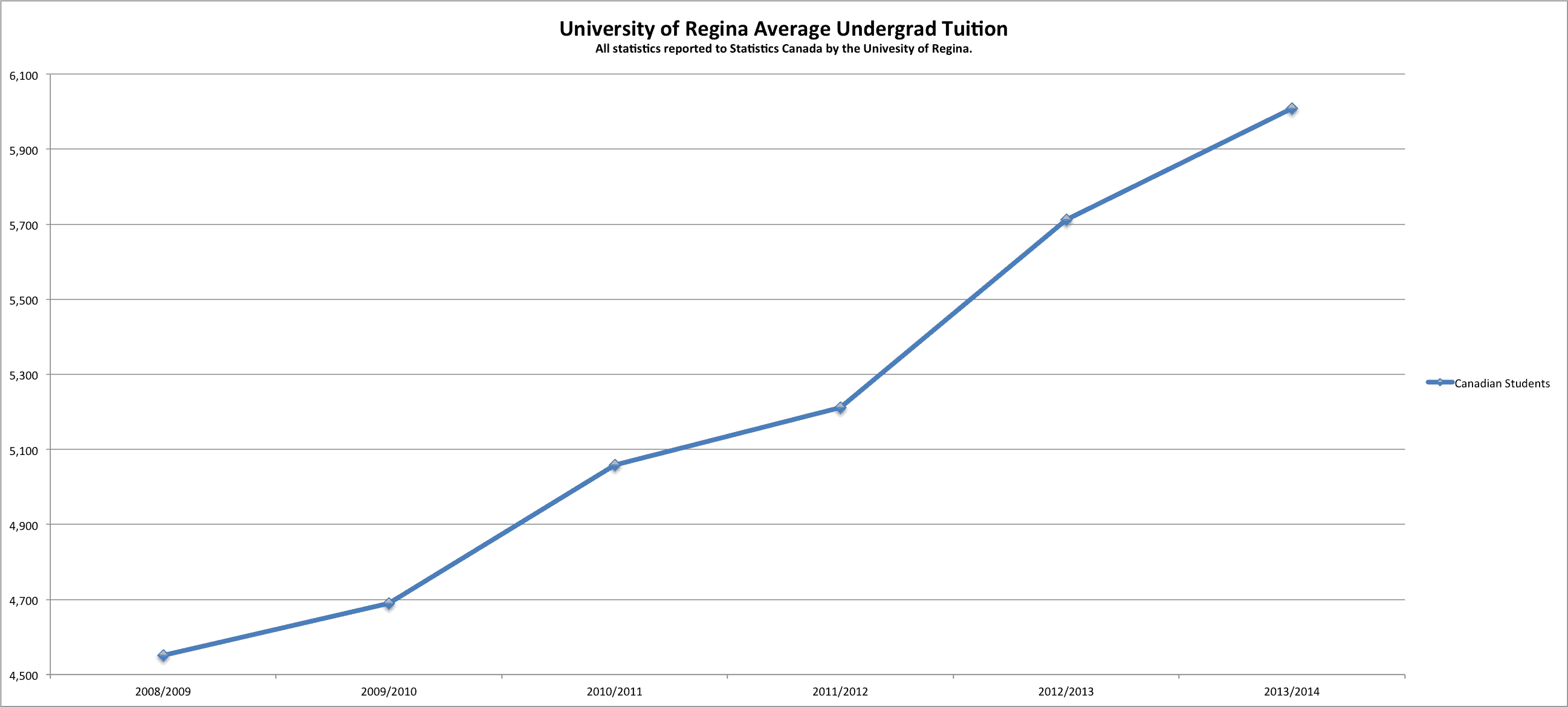Tuition on the rise again


An average raise of 32 percent for provincial students and 92 percent for international students since 2008 – 2009. / Alec Salloum
But will students benefit at all?
Tuition, a necessary evil to say the least, is once again on the rise. For nearly a decade, this has been the norm at the University of Regina. Since the 2008 – 2009 semester to this past year, tuition has increased 32 per cent for Saskatchewan students and 92 per cent for international students, according to information released to Statistics Canada by the U of R.
This coming semester, a 3.8 per cent increase will be applied to annual tuitions for U of R students enrolled in undergraduate and graduate programs. Though tuition raises are unpopular, this year the University does seem on track to allocate these funds appropriately. However, the source of this tuition raise comes from the Saskatchewan budget, which was released on March 19.
Though the budget was balanced, an impressive feat, the University did not receive its desired operation fees increase. The desired increase translated to a 3.8 per cent annual increase in provincial funding. Unfortunately, and despite the budget, the provincial government approved an increase of only 2.07 per cent. This does create a problem as the province systematically underfunding education results in these tuition hikes. Though the administration implements them, the provincial government is largely responsible. For coverage of the provincial budget, look for Expect a Tuition Hike! on the Carillon website.
Regardless, URSU President Devon Peters, fresh from his first board of governors meeting, was positive and hopeful in looking toward the future semester.
“In the past, I’ve been a pretty vocal critic of the budget decisions that have been made around here. This year honestly feels like a win to me for students and faculty.”
Peters cites that graduate tuitions have been experiencing tuition hikes of approximately 5 per cent annually, so the 3.8 per cent increase, though still an increase, is definitely positive, especially when considering the influx of graduate studies and research positions at the U of R. The U of R’s 2014 Environmental Scan published statistics showing that from the 2008-2009 semesters to 2013-2014, graduate studies and research faculty credit hours have experienced a 6513 percent increase. This translates to an increase from 24 faculty credit hours to 1,587.
Additionally, faculty vacancies will be filled and new positions will be created. A specific number has been given, 30 new faculty members, with the dynamics of these positions being uncertain currently. However, it is known that many new positions will be allocated to the new nursing faculty at the university.
When looking at a tuition increase, the focus should be paid to why these funds were requested and subsequently where the money will be going. For example, the 2014 Environmental Scan “identified a need of $20 million alone for the replacement of faculty roofs.” Without a doubt this will be a concern for the administration. Dave Button, Vice-President of Administration, also discussed the re-investment of tuition in student programs and scholarships.
“We’ve taken one third of the tuition increase and reinvested it in things like financial aid. Also, [there’s] a million-and-a-quarter dollars between both undergrad and graduate scholarships.”
Despite these new incentives and benefits, the fact of the matter is students will be paying more for our education.
“Tuition for students is ridiculous,” says Crystal McIntyre, a single mother currently enrolled in the social worker program. “From a mother’s standpoint, I feel I’m not able to spend enough time with my child because I have to balance school with work.”
Hopefully the programs and reinvestment established by the administration will be able to accommodate all students and genuinely increase our standard of education.










[…] Tuition has gone up in the past, and you can expect another tuition hike […]